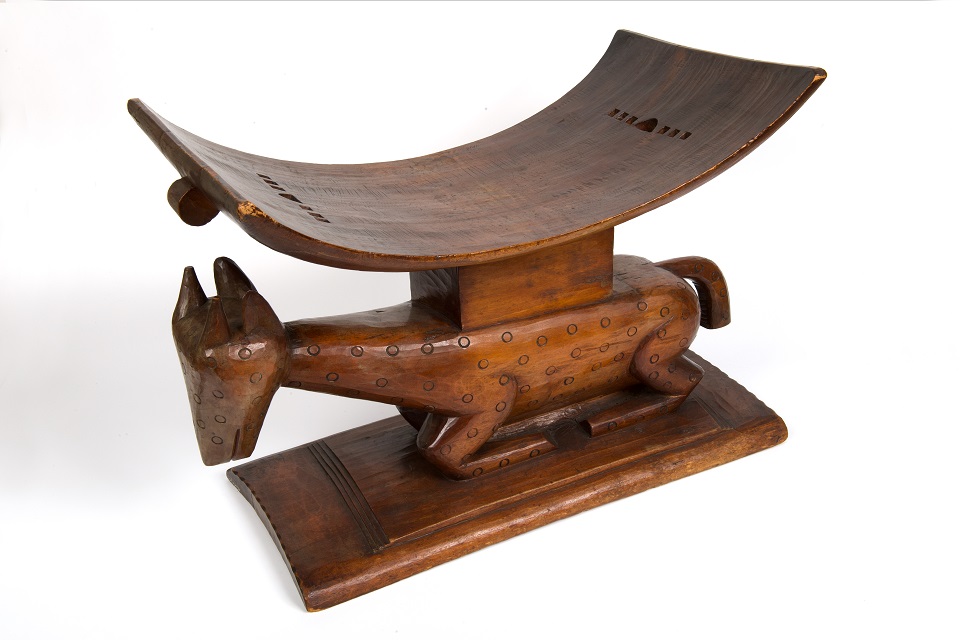Record details
| Asante stool – Osebo Dwa | |

|
|
|
For the Asante people wooden stools are very personal to each individual and only the owner can sit on their own stool. The Asante believe that each wooden stool holds the soul, spirit or sumsum of its owner. |
|
| Northampton Museum and Art Gallery | |
| 1800-1900 | |
| Asante Empire, now Ghana | |
| Wood from the Funtumia Elastica tree | |
|
When the owner gets up from their stool they will turn it to the wall so as not to pick up any unwanted spirits. This stool is carved from one piece of wood and depicts a leopard. The leopard is a spirtitual symbol of the Bretuo clan who are associated with the Asante military. The leopard and elephant stools are only made for the kings or high-ranking individuals due to the characteristics inspired by the animals. Leopards represent strength, ferocity and courage. The original stool is known as the golden stool. It is believed to have floated from the sky and landed in the lap of the then King Osei-tutu in the 17th century. The Golden Stool holds the soul or sumsum of the Ashante Kingdom and without it the soul of the Ashante people would be lost forever. The Ashanti Empire lasted from 1701 until 1957 in what is now Ghana.Today, the Ashanti Kingdom survives as a constitutionally protected, sub-national traditional state. In 1900 after that exile of the King Premeph in 1896 by Britain, The Governor of the Gold Coast, Sir Frederick Hodgson, demanded to sit on the stool saying: 'I am the representative of the paramount power, why have you relegated me to this ordinary chair. Do you not take the opportunity of me coming to Kumasi to bring the stool for me to sit upon?' The Queen Mother Yaa Ashantewaa responded: 'Now I see that some of you fear to come forward to fight for our King. If we were in the brave days of Osei-tutu, Anokye chiefs would not sit down to see their King taken away without firing a shot. No European could have dared to speak in a way the Governor spoke to you this morning. Is it true that the bravery of Ashante is no more? I cannot believe it. It cannot be. I must say this, if you, the men of Ashante will not go forward, we the women will fight. We will fight till the last of us falls in the battle field.' After galvanising the tribe, Yaa Ashantewaa, led the war now known as the war of the golden stool against the British. Researched as part of the Knowledge of the unseen project. |
|
| On display in the Inspiration exhibition in Art Gallery 2 |
